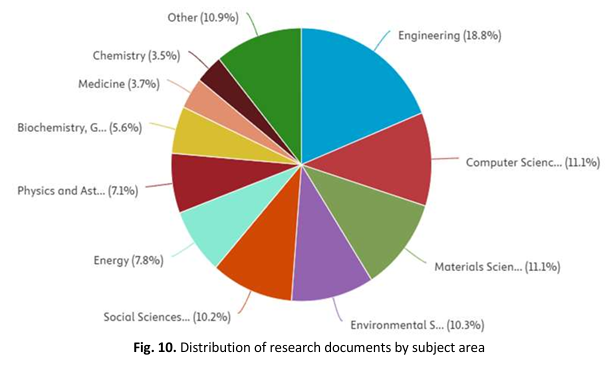Exploring Digital Learning Media Research Trends in Education for Sustainable Development Relating to Particle Technology: A Bibliometric Analysis Approach
DOI:
https://doi.org/10.37934/ard.139.1.5073Keywords:
Bibliometrics analysis, digital learning media, education sustainable development, particle technologyAbstract
This research explored digital learning media research trends in education for sustainable development (ESD) relating to particle technology through a bibliometric analysis approach. Data taken from the Scopus database for the last ten periods (2014-2024) was used in this research Data were sourced from the Scopus database for the period 2014–2024, analysed in four stages: (i) data collected, (ii) screening for relevant studies, (iii) bibliometric analysis using VOSViewer and Microsoft Excel to visualize trends, and (iv) interpretation and conclusion. A total of 4,115 documents were analysed, showing significant growth in publications since 2018, particularly during the COVID-19 pandemic (2019–2021), driven by the shift to digital learning. Key findings reveal that Learning Management Systems (LMS), e-learning platforms, and interactive applications became crucial in maintaining educational continuity during the pandemic, while ESD gained prominence as global awareness of sustainability challenges increased. Geographically, the analysis highlights significant contributions from China, the United States, and Germany, with institutions such as the Ministry of Education of the People's Republic of China leading in publication output. Research trends identified nine clusters, including particle technology and design, sustainability education, digital technology and virtual learning, and sustainable energy solutions. Emerging technologies like augmented reality, virtual simulations, and deep learning are identified as critical for integrating particle technology into ESD. This study emphasizes the need for interdisciplinary collaboration among educators, policymakers, and researchers to develop innovative digital learning tools. These findings provide a foundation for advancing sustainable educational practices to address global challenges, including clean energy, environmental management, and technological innovation.
Downloads























